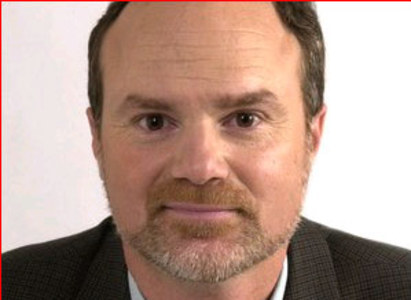A week ago, Pauline Marois seemed firmly in control of the often temperamental Parti Québécois, destined to become Quebec's first female premier, replacing an extremely unpopular Jean Charest. Suddenly on Tuesday, the floor fell from under her feet. Four prominent Members of the National Assembly (MNA) announced they were leaving the PQ caucus, discontent with Mrs. Marois' leadership, especially her decision to put independence on the backburner en route to the elections two years from now.
For the past 30 years, support for independence has been remarkably stable at 40 per cent, except for two brief periods (after the failure of the Meech Lake Accord and in the last weeks of the 1995 referendum campaign). That stability has frustrated separatists, whose constant efforts to convince Quebecers to follow them has fallen on a majority of deaf ears. It also confuses Canadians outside the province, who wonder why on Earth so many Quebecers still believe that separation would be good for Quebec. Hasn't the province become one of the most prosperous regions on Earth (Statistics Canada announced yesterday that Quebec's unemployment rate had gone down to 7.3 per cent, significantly lower than Ontario's)? Aren't French-speaking Quebecers in control of their province's political and economic affairs? Doesn't Quebec receive billions in equalization payments, thanks to which Quebec taxpayers can afford very generous social programs? (Comment peut-il être prospère et recevoir des milliards de péréquation?)
For older separatists, these facts do not compensate for the historical wrongs – their list is endless – suffered by French Canadians since the 1763 conquest. Theirs is generally an emotional nationalism, although rationalized by political and economic arguments.
Younger separatists' reasons for supporting independence are different. They are full of confidence in themselves and therefore do not fear separation. They travel all over the world to study, work and visit but have never found a reason to go to Toronto or Vancouver, let alone St. John's or Regina. To them, the rest of Canada is a foreign country, with a different culture and different values. They see the election of a majority Harper government and Quebecers' massive vote for the NDP as the latest demonstration of the unbridgeable canyon between Quebec and English Canada. They believe the federal system is inefficient and that Quebec could better tackle the challenges it faces if it had all the tools of government in its possession.
Younger Quebecers are rarely exposed to passionate, intelligent arguments in favour of federalism and the Canadian experience. Most of what they hear from English Canada transmits, at best, indifference toward Quebec and the French language (witness the opening ceremony of the Vancouver ). Having not lived through two referendums and endless constitutional debates, they don't understand English Canadians' hostility toward changes that would be advantageous to Quebec.
Meanwhile, separation is promoted by their professors, by the artists they admire and by brilliant politicians young and old. Two weeks from now, when tens of thousands of people attend the huge Fête Nationale shows in Montreal and Quebec City, they'll hear pop singers and rap groups yell “Vive le Québec Libre!” at the beginning or the end of their performance. At l'Université de Montréal, there is an annual “semaine de la souveraineté,” when students can listen to figures like Jacques Parizeau and Bernard Landry explain why separation would be in Quebec's economic and cultural interests. Needless to say, there is no “semaine du Canada.”
Nowadays, no one speaks to Quebecers, especially the younger generation, about Canada and the principles and values that are the foundation of the federation. To Quebecers under 40, sovereignty seems both logical and natural, good for Canada as well as for Quebec, as Gilles Duceppe often said.
So whatever happens to Pauline Marois and to the Parti Québécois, a very large number of Quebecers will continue to favour separation. Increasingly, that choice will not be based on what they have learned in history books but on what they perceive as a fait accompli: Quebec and Canada are already walking on divergent paths.
***
André P ratte is the chief editorial writer at La Presse.
Why are so many young Quebecers still sovereigntists
Quebec and Canada are already walking on divergent paths
Pratte a réservé au G&M de Toronto son scoop: "l'idée fédérale" doit céder le pas devant la réalité politique: DÉSORMAIS, Canada et Québec empruntent des chemins séparés... Surveillons la traduction française dans ses éditoriaux dans la Grosse Presse Épaisse.

André Pratte878 articles
[une chronique intitulée « Tout est pourri » (critique de Anne-Marie Gingras) ->http://books.google.fr/books?id=EZWguAMXAtsC&pg=PA27-IA27&lpg=PA27-IA27&dq=pratte+Tout+est+pourri&source=bl&ots=MUti9NTQuH&sig=h2zgJlLgOg844j5ejxnUl4zH2_s&hl=fr&sa=X&ei=73RrT8a...
Cliquer ici pour plus d'information
[une chronique intitulée « Tout est pourri » (critique de Anne-Marie Gingras) ->http://books.google.fr/books?id=EZWguAMXAtsC&pg=PA27-IA27&lpg=PA27-IA27&dq=pratte+Tout+est+pourri&source=bl&ots=MUti9NTQuH&sig=h2zgJlLgOg844j5ejxnUl4zH2_s&hl=fr&sa=X&ei=73RrT8aQEqnh0QHuh4GyBg&ved=0CEEQ6AEwBQ#v=onepage&q=pratte%20Tout%20est%20pourri&f=false]
[Semaine après semaine, ce petit monsieur nous convie à la petitesse->http://www.pierrefalardeau.com/index.php?option=com_content&task=view&id=30&Itemid=2]. Notre statut de minoritaires braillards, il le célèbre, en fait la promotion, le porte comme un étendard avec des trémolos orwelliens : « La dépendance, c’est l’indépendance ». « La soumission, c’est la liberté ». « La provincialisation, c’est la vraie souveraineté ». « La petitesse, c’est la grandeur ». Pour lui, un demi-strapontin à l’Unesco est une immense victoire pour notre peuple. C’est la seule politique étrangère qu’il arrive à imaginer pour le peuple québécois. Mais cet intellectuel colonisé type n’est pas seul. Power Corp. et Radio-Cadenas en engagent à la poche.




















Laissez un commentaire Votre adresse courriel ne sera pas publiée.
Veuillez vous connecter afin de laisser un commentaire.
Aucun commentaire trouvé